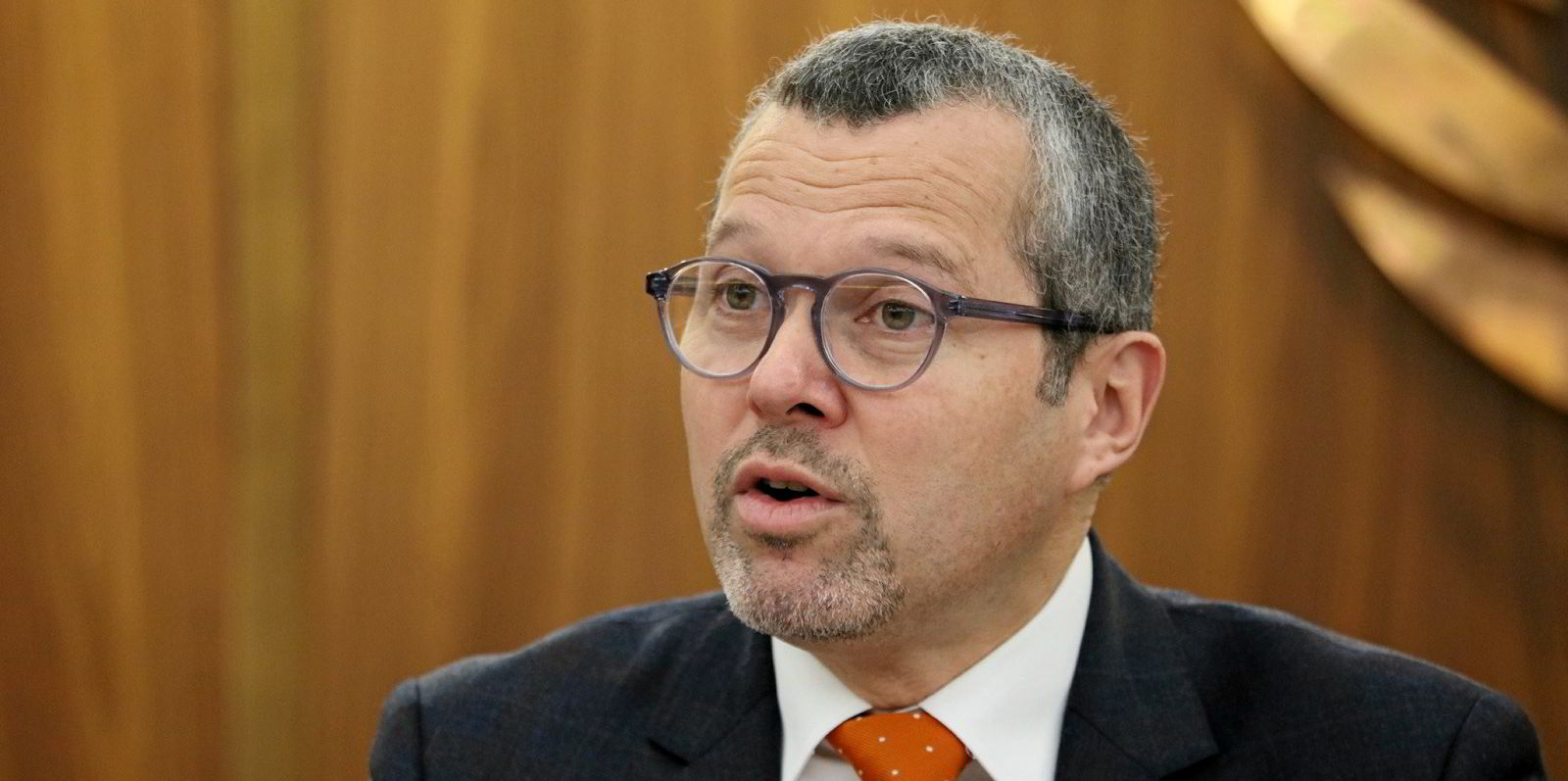Seafarers’ Rights International has spotlighted glaring gaps in implementing the Maritime Labour Convention for crew.
The London-based pan-industry body researching maritime and seafarers law said a study shows a success rate of 65% around the world for the legislation known as the seafarers’ “bill of rights”.
The convention for 1.9m personnel entered into force in 2013.
It is intended to provide crew members with decent work and to ensure a level playing field for quality shipowners that compete against substandard ships among the many thousands of merchant vessels trading internationally.
So far, 105 countries have ratified it, representing more than 96% of the world’s gross tonnage.
But Seafarers’ Rights executive director Deirdre Fitzpatrick told TradeWinds that 80 states have yet to ratify.
Fifty of these have navigable access to the world’s oceans and 30 are landlocked.
These countries include some significant states where the MLC is not enforced by port state control, she said.
The research, commissioned by the International Transport Workers’ Federation, concludes that the convention is not being strictly and evenly enforced globally.
“The findings identify substantial achievements in the enforcement of the MLC but also identify significant gaps,” Seafarers’ Rights said.
It claims it has taken a unique approach by evaluating the involvement of a wide range of stakeholders and players.
The 65% rate for implementation and enforcement is “very approximate”, it acknowledged.
Fitzpatrick said: “These findings challenge any complacency about the MLC working efficiently and uniformly around the world.
“The high level of ratifications and coverage of world tonnage could lead to the view that the MLC is widely effective around the world. But the research shows a different reality.
“The research found that the significance of the MLC as a living instrument must also be seen in the changing maritime environment and as intrinsically linked with other international conventions and the changes that are being seen with maritime autonomous surface ships; environmental, social and governance in the shipping industry; and climate change.”
Fitzpatrick argues that greater efforts are needed to address the gaps in its effectiveness.
The report identifies a lack of resources and expertise as barriers to enforcement.
“States ratify the convention, but there are cases where the states then do not implement the provisions of the MLC into their national laws and practices, or they do not report their compliance to the International Labour Organization,” she said.
“It is an ongoing task to build capacity and awareness leading to compliance for a more effective MLC around the world.
“There are still significant problems with unpaid wages. The ITF inspectorate is reported to have recovered nearly $60m in unpaid wages in 2023.”
And she said: “A substantial number of states are not fulfilling their responsibility regarding repatriation of abandoned seafarers.”
The ILO is reviewing its database of these incidents. It has been reported that the highest ever number of abandoned ships were logged in 2023.
And more than 100 cases of seafarer abandonment were recorded in the first three-and-a-half months of this year, Fitzpatrick added.






